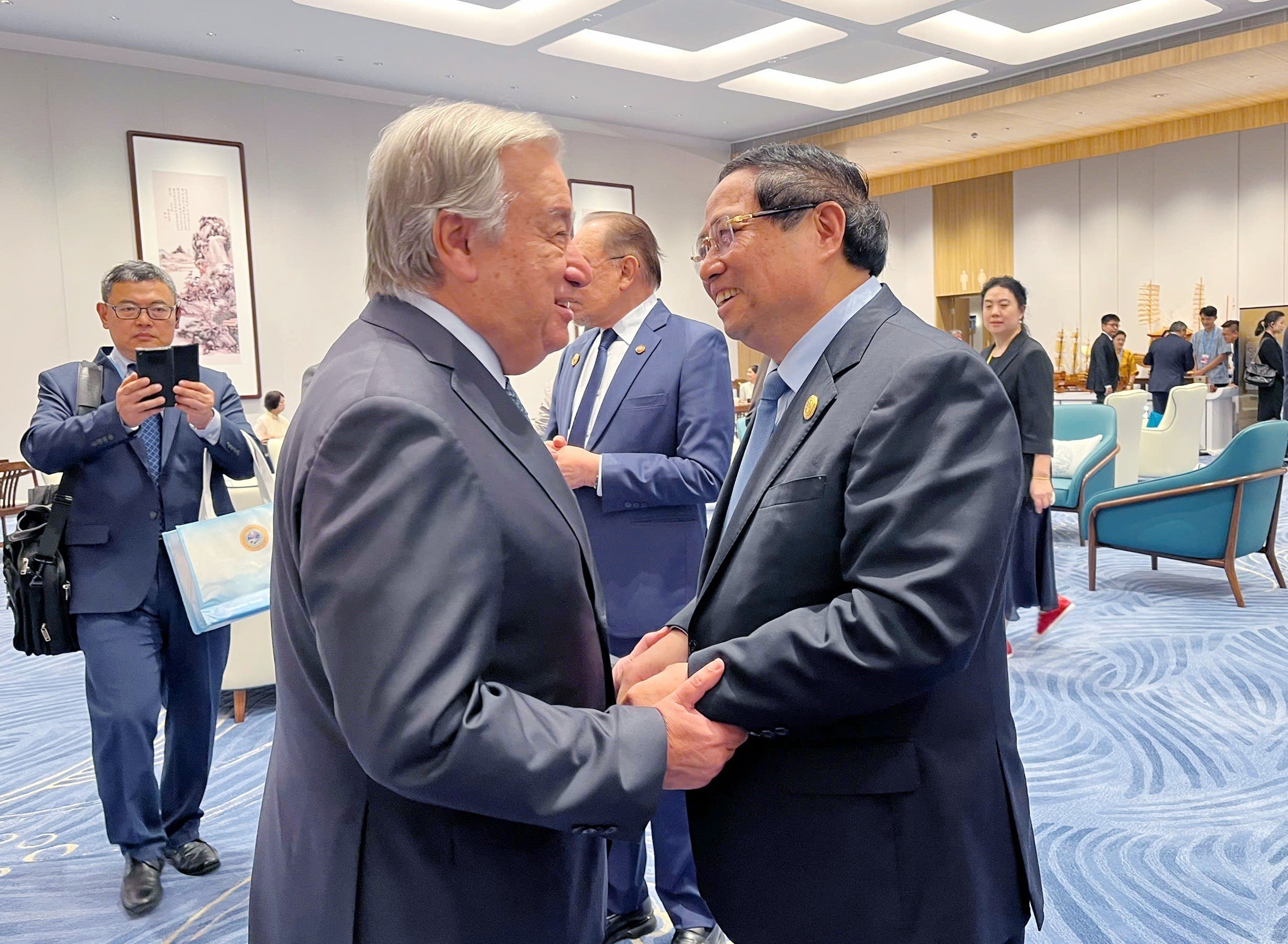
Policy belong to Our Party on building Vietnam's foreign affairs and diplomacy
Immediately after the success of the August Revolution (1945), the Democratic Republic of Vietnam was established, President Ho Chi Minh directly directed and oriented the development of modern Vietnamese foreign affairs and diplomacy (1) . Inheriting President Ho Chi Minh 's guiding ideology on foreign affairs, through the process of building and defending the Fatherland, along with the development of the country and changes in the international situation, our Party continued to promote the work of building and developing Vietnam's foreign affairs and diplomacy. Entering the period of Renovation, our Party gradually concretized and perfected the theoretical basis for building a comprehensive and modern Vietnamese foreign affairs and diplomacy. The 6th National Congress (1986) of the Party for the first time clarified the subjects of each group of foreign affairs activities of Vietnam including: "Our Party", "Our State" and "Our People". Resolution No. 13-NQ/TW, dated May 20, 1988, of the 6th Politburo, officially laid the foundation for building Vietnam's foreign affairs in the renovation period when it advocated building " an open foreign affairs " (2) . Since then, through congresses, our Party has continued to perfect the components of Vietnam's foreign affairs, comprehensively and specifically mentioning the pillars in Vietnam's foreign affairs activities. By the 13th Congress (2021), our Party's thinking on foreign affairs and diplomacy had a new development when it proposed the policy of "building a comprehensive, modern diplomacy with three pillars: party foreign affairs, state diplomacy and people's diplomacy" (3) .
At the first National Foreign Affairs Conference (December 2021) held in Hanoi, the concept and task of building a comprehensive and modern Vietnamese foreign affairs and diplomacy were put forward, becoming one of the important political tasks for the entire political system, which is "building and developing a modern Vietnamese foreign affairs and diplomacy imbued with national identity - the "Vietnamese bamboo" diplomatic school" (4) . This is a correct policy, showing the development of our Party's awareness in both theory and practice, completely consistent with the circumstances, conditions and development process of the Vietnamese revolution.
In theory , in the world, foreign affairs is a common concept not only for political parties, single-party countries, but also for multi-party countries, large international organizations such as the European Union (EU), the Association of Southeast Asian Nations (ASEAN)... The main tasks of foreign affairs are: 1- Building guidelines and strategic orientations for foreign affairs and diplomacy activities on the basis of common political goals; 2- Inspecting and supervising the implementation of foreign affairs policies in the political system, in accordance with common political goals. In other words, foreign affairs is the relationship between subjects in the entire political system within the country and the outside, comprehensive, from economic relations, development aid to foreign affairs, defense, and security (5) . Diplomacy is a part of the country's foreign affairs, playing an important role in the process of implementing foreign affairs policies. In Vietnam, the political system is unified under the comprehensive leadership of the Communist Party of Vietnam. Therefore, determining the policy of building Vietnam's foreign affairs and diplomacy is a theoretical breakthrough, suitable for the country's conditions and political system, and the common perception of the international community, the international integration process and the international position of our Party and our country, contributing to taking advantage of opportunities and transforming challenges in the new context.
In practice , the 13th National Party Congress affirmed: "Our country has never had such a foundation, potential, position and international prestige as today" (6) , which is an important driving force and resource for our country to continue firmly on the path of comprehensive, synchronous innovation, rapid and sustainable development. The country's potential has been enhanced with the economic scale constantly expanding, the level of development has been raised above the regional and global average. The foreign front is open, the country's international position and prestige have been enhanced... However, the 13th National Party Congress also frankly acknowledged, "the world is undergoing enormous changes, with rapid, complex, and unpredictable developments” (7) , requiring continued strong innovation in thinking, accurate and timely forecasts of developments in the situation, and proactive and timely response to all situations. The task of building and developing a comprehensive and modern foreign affairs and diplomacy clearly demonstrates the determination to continue the innovation process, which is a breakthrough, timely development, suitable to Vietnam's conditions, as well as the international context.
Affirming Vietnam's comprehensive and modern foreign affairs and diplomacy
Based on the Party's policies and the direct guidance of the Politburo and the Secretariat, the political system has promoted research and implementation of the construction of Vietnam's foreign affairs and diplomacy in the renovation period. Accordingly, the content of Vietnam's comprehensive, modern and professional foreign affairs and diplomacy has been concretized with important orientations:
Firstly, foreign affairs and diplomacy are built with three pillars: party diplomacy, state diplomacy and people's diplomacy with specific positions, roles and roles. In which, party diplomacy has the role of guiding the overall strategy, determining major policies to implement the Party's foreign policy, contributing to building a solid political foundation and favorable conditions for Vietnam's relations with other countries. State diplomacy plays a core role in institutionalizing and organizing the implementation of the Party's foreign policy, and is the official diplomatic channel between the Vietnamese State and other countries. People's diplomacy plays a core role in strengthening friendship and cooperation with people of other countries, and is a "heart-to-heart" foreign channel that influences and impacts people's hearts with justice, reason, morality and humanity.
Second, it is a unique and distinctive foreign affairs and diplomacy, inheriting the national tradition. Accordingly, foreign affairs and diplomacy are both steadfast in principles and flexible in tactics; gentle and clever but resilient and resolute; flexible and creative but very brave and courageous in the face of all difficulties and challenges, for national independence, for freedom and happiness of the people; united and humane but determined and persistent in protecting national interests. In the thousands of years of building and defending the country, our ancestors have always focused on foreign affairs, taking peace, harmony and friendship as the core, promoting benevolence and altruism, creating a unique tradition and identity of Vietnamese foreign affairs and diplomacy full of spirit and humanity.
Third, it is the foreign affairs and diplomacy under the unified and absolute leadership of the Party, the centralized management of the State with Marxism-Leninism and Ho Chi Minh Thought as the foundation and compass. At the 9th Congress, in the context of Vietnam promoting international integration, our Party clearly stated the task of "perfecting the unified management mechanism of foreign affairs activities, creating a comprehensive strength to effectively carry out foreign affairs tasks" (8) . The 10th Congress of the Party emphasized: "ensuring the unified leadership of the Party and the centralized management of the State over foreign affairs activities" (9) . The orientation of the congress has been and is being further concretized through many documents of the Party and State, especially Decision No. 272-QD/TW, dated January 21, 2015, of the 11th Politburo, "On promulgating the Regulation on unified management of foreign affairs activities", affirming the particularly important position of foreign affairs work for the Party and the country.
Wednesday, is a modern, professional foreign affairs and diplomacy, meeting the new development requirements of the country and the times. Along with the process of comprehensive and deep international integration, our country in particular and the world in general are witnessing the strong development of the Fourth Industrial Revolution with new achievements in science and technology, helping to increase international connections. In the general context, our Party has promptly grasped and developed, expanding the connotation of modern Vietnamese foreign affairs, with both modern material and technical infrastructure and professionalism, high level and adaptability, scientific and streamlined organization, effective operating methods, contributing to promptly grasping and effectively exploiting opportunities, minimizing challenges, actively supporting the country's integration work, especially in new fields such as artificial intelligence (AI), digital economy, green economy, etc.
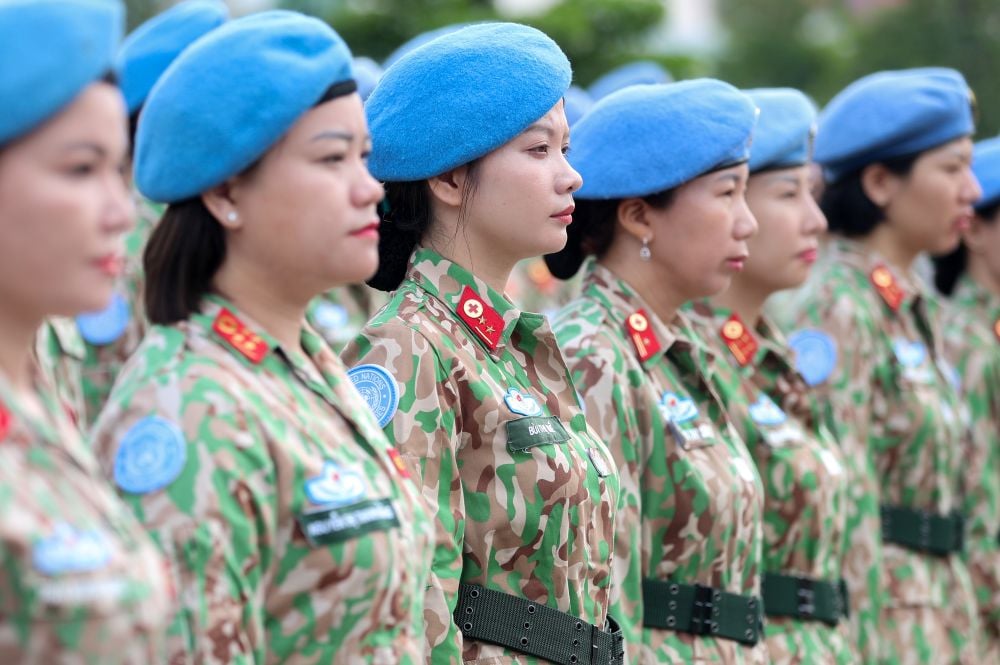
Record the results positive
Based on the Party's correct policies, since the 13th National Congress, the entire political system has proactively and actively participated in building a comprehensive and modern Vietnamese foreign affairs and diplomacy, making foreign affairs a bright spot in the country's overall development achievements.
The awareness of the entire political system about the role and tasks of foreign affairs has been raised . The foreign affairs pillars and the agencies directly implementing foreign affairs work increasingly attach importance to and identify building a comprehensive and modern foreign affairs and diplomacy as the central and top priority task. The work of innovation and improving the operational efficiency of the pillars has been promoted, contributing positively to the general work of Vietnam's foreign affairs.
Foreign affairs activities are carried out in a unified manner . Under the unified and direct leadership of the Party and the centralized management of the State, the pillars of Vietnam's foreign affairs and diplomacy are increasingly actively participating and proactively contributing to common foreign affairs activities, promoting the "constructive" role in foreign affairs and international integration of the country. The organization of high-level foreign affairs activities, especially by key leaders and senior leaders of the Party and State, is increasingly systematic and professional, with the participation and effective contribution of all pillars, fields, central and local agencies, promoting the combined strength of the entire political system, improving the effectiveness of each foreign affairs activity.
Cooperation in the fields of defense diplomacy, security diplomacy, economic diplomacy, political diplomacy, cultural diplomacy, science - technology, religion... has been promoted , contributing to protecting national interests. Vietnam is increasingly confident, taking on an important role in regional and international organizations such as a non-permanent member of the United Nations Security Council for the 2020 - 2021 term, a member of the United Nations Human Rights Council for the 2023 - 2025 term, a member of the Executive Board of the United Nations Entity for Gender Equality and the Empowerment of Women for the 2025 - 2027 term... Vietnam has successfully organized many large-scale, complex international events, hosting them for the first time, such as: International Defense Exhibition (2022, 2024); 9th Global Young Parliamentarians' Conference (2023); The 4th Global Conference on Sustainable Food Systems (2023); ASEAN Future Forum (2024, 2025)... The United Nations General Assembly's selection of Vietnam as the venue for the signing ceremony of the United Nations Convention against Cybercrime in 2025 marks a new milestone in Vietnam's international legal integration in particular and multilateral diplomacy in general, affirming that Vietnam is an active, trustworthy and responsible partner of the international community.
In addition, Vietnam's foreign affairs and diplomacy recorded many bright spots: First , deepening relations and strengthening political trust between Vietnam and its partners through organizing and implementing many historic delegation exchanges and conferences, contributing significantly to enhancing the position and prestige of the Party and the country, especially with neighboring countries, permanent members of the United Nations Security Council, countries in the region and international friends. Second, promoting the pioneering role of foreign affairs, contributing to maintaining a peaceful and stable environment for development, learning international experience and attracting external resources to serve national development. Third, Upgrading relations with many countries and partners, as well as signing many important cooperation agreements, creating a legal framework for international cooperation. To date, Vietnam has relations with 194 countries and territories; establishing comprehensive partnerships, strategic partnerships, and comprehensive strategic partnerships with 35 countries; establishing relations with 259 political parties in 119 countries around the world. Fourth, promoting the process of comprehensive and deep international integration, enhancing the country's international position and prestige. Vietnam actively participates and contributes responsibly to common international tasks, such as reducing emissions, combating climate change; sending hundreds of military and police officers and soldiers to participate in the United Nations peacekeeping mission...
However, the implementation of building and developing a comprehensive and modern Vietnamese foreign affairs and diplomacy in recent times still has some limitations, not fully exploiting the potential to contribute to the overall development of the country. Although awareness of building a Vietnamese foreign affairs and diplomacy has been raised, the attention and investment of a number of departments, ministries, branches and localities are not commensurate with the requirements of the tasks, leading to uneven awareness and capacity for international integration, not exploiting and promoting effectively the potential for cooperation in intertwined interest relationships with partners; the effectiveness of implementing a number of cooperation agreements has not met the requirements. The coordination and combination between foreign affairs pillars, between foreign affairs and other fields, between a number of departments, ministries, branches and localities in foreign affairs work is still not close, leading to foreign affairs and diplomacy work, sometimes not keeping up with the rapid and complicated changes of the world and regional situation, not fully anticipating the adverse impacts...
Efforts to successfully implement the foreign policy of the 13th National Party Congress
The world and the region are witnessing rapid changes, deeply affecting all aspects of global political, security, economic and social life. Tensions and conflicts between countries are escalating to a high level. International cooperation and multilateral institutions are facing unprecedented challenges as trust between countries is gradually being replaced by confrontation and suspicion. Open multilateralism, promoted by the strong globalization process over the past three decades, is being eroded. Non-traditional and traditional security challenges are increasingly intertwined, making the security and development environment of the Asia-Pacific region more complex and unpredictable than ever.
To overcome difficulties and challenges, successfully carry out the goals and tasks of foreign affairs from now until the end of the term, as the 13th National Party Congress has set out: “Consistently implement the foreign policy of independence, self-reliance, peace, friendship, cooperation and development, diversify and multilateralize foreign relations. Ensure the highest national interests on the basis of the fundamental principles of the United Nations Charter and international law, equality, cooperation and mutual benefit. Combine national strength with the strength of the times, proactively and actively integrate comprehensively and deeply into the international community; Vietnam is a friend, a reliable partner and an active, responsible member of the international community” (10) , The construction and development of Vietnam's foreign affairs and diplomacy must continue to be considered a core task of foreign affairs, creating a solid foundation for effective implementation of foreign affairs and international integration in the era of national growth, with the following directions:
Firstly , continue to promote the dissemination and raising awareness of comprehensive, modern and professional Vietnamese foreign affairs and diplomacy throughout the entire political system and country; always pay attention to building solidarity and consensus within the entire Party, army and people as advised by President Ho Chi Minh: "The cause is made by Unity" (11) .
Second , do a better job of organizing and implementing the Party's policies and guidelines on building and developing comprehensive and modern foreign affairs; maintain an independent, self-reliant, peaceful, cooperative and developmental foreign policy; focus on coordination between foreign affairs pillars, between foreign affairs and other fields such as defense, security, economy, culture, science and technology, etc., between the Central and local levels, between multilateral and bilateral foreign affairs, maximize the country's potential, and enhance Vietnam's position.
Third , continue to promote theoretical research, perfect the content of comprehensive, modern, professional foreign affairs and diplomacy and management institutions suitable to the conditions, political system of the country and the context of the times, focusing on handling well the relationship between domestic and foreign affairs, as well as the relationship between independence, autonomy and international integration, maximizing the combined strength of foreign affairs agencies. Perfecting the theoretical basis will create a solid foundation for the diplomatic sector to affirm its key role, confidently implement strategies and plans, and move towards successfully completing the tasks set by the Party, State and people for Vietnam's foreign affairs and diplomacy.
Fourth , promote research and application of digital technology and information technology in building Vietnam's foreign affairs and diplomacy, take advantage of and promote the achievements of science and technology, innovate working methods and ways, towards professionalism, modernity and efficiency. Strengthen online foreign affairs activities and phone calls, especially between senior leaders, both contributing to increasing contact and exchange and promptly resolving arising issues. Continue to promote administrative reform and digital transformation at agencies directly involved in foreign affairs, contributing to improving the quality of public services and developing digital data to serve foreign affairs.
Fifth , continue to effectively reorganize and arrange the apparatus of agencies performing foreign affairs work in the spirit of Resolution No. 18-NQ/TW, dated October 25, 2017, of the 6th Central Conference, Session XII, "Some issues on continuing to innovate and reorganize the apparatus of the political system to be streamlined and operate effectively and efficiently", to maximize the combined strength of the forces performing foreign affairs work; strengthen the building and improvement of institutions and policies for unified management of foreign affairs activities under the unified and direct leadership of the Party and centralized management of the State, meeting the requirements in the new situation when foreign affairs work is identified as important and regular (12) . At the same time, effectively implement Resolution No. 59-NQ/TW, dated January 24, 2025, of the Politburo, "On international integration in the new situation", contributing to bringing the country steadily forward, entering a new era./.
------------------------
(1), (2) See: Nguyen Phu Trong: Building and developing a comprehensive, modern Vietnamese foreign affairs and diplomacy, imbued with the identity of "Vietnamese bamboo" , National Political Publishing House Truth, Hanoi, 2023, pp. 7, 25
(3), (6), (7), (10) Documents of the 13th National Congress of Delegates , National Political Publishing House Truth, Hanoi, vol. I, pp. 162, 10, 105, 161 - 162
(4) See: "Full text of General Secretary Nguyen Phu Trong's speech at the National Foreign Affairs Conference", Government Electronic Newspaper , December 14, 2021, https://baochinhphu.vn/toan-van-phat-bieu-cua-tong-bi-thu-nguyen-phu-trong-tai-hoi-nghi-doi-ngoai-toan-quoc-102305526.htm
(5) Tapio Raunio: “Party Politics or (Supra)National Interests? Voting in Foreign Affairs in the European Parliament”, Foreign Policy Analysis , 2020, https://academic.oup.com/fpa/article/16/4/515/5911933
(8) Complete Party Documents , National Political Publishing House, Hanoi. Vol. 60, p. 209
(9) Complete Party Documents , op. cit., vol. 65, p. 212
(11) Ho Chi Minh: Complete Works , National Political Publishing House Truth, Hanoi, 2011, vol. 3, p. 279
(12) See: General Secretary To Lam's directive speech at the 75th Anniversary of the Traditional Day (November 1, 1949 - November 1, 2024) of the Central Foreign Affairs Commission, Electronic Communist Magazine , October 28, 2024, https://www.tapchicongsan. org.vn/web/guest/tin-tieu-diem/-/asset_publisher/s5L7xhQiJeKe/content/ In the new era of national development, foreign parties must promote propaganda to reach new heights in order to complete the nation's development.
Source: https://tapchicongsan.org.vn/web/guest/quoc-phong-an-ninh-oi-ngoai1/-/2018/1137002/day-manh-nen-ngoai-giao-viet-nam-toan-dien%2C-hien-dai%2C-vung-tam-the-buoc-vao-ky-nguyen-phat-trien-moi-cua-dan-toc.aspx









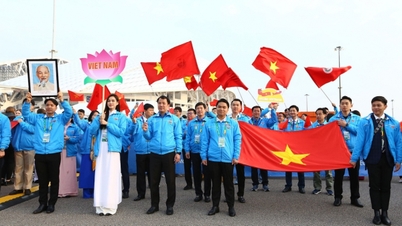

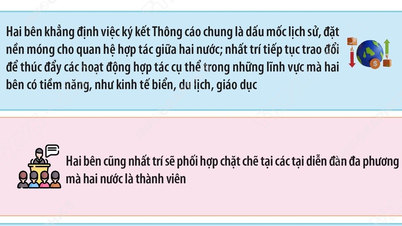



![[Photo] President visits Vietnam's Permanent Mission to the United Nations](https://vphoto.vietnam.vn/thumb/402x226/vietnam/resource/IMAGE/2025/9/24/b97c02dea2634eb38b94b1d6145671e3)



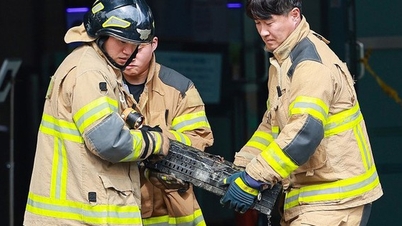

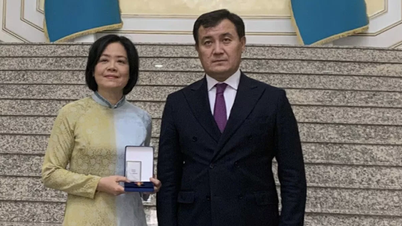
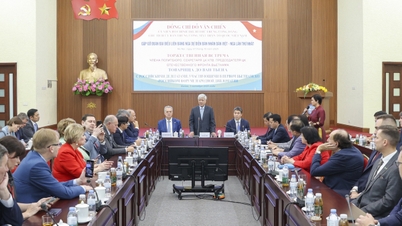

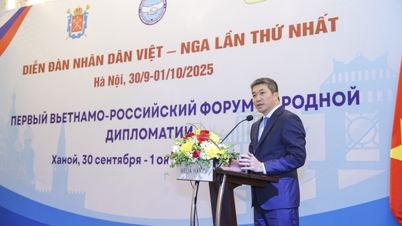

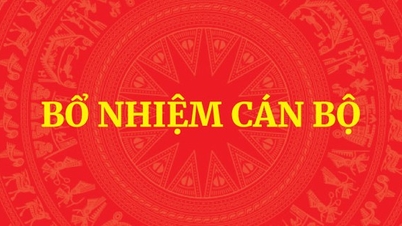









































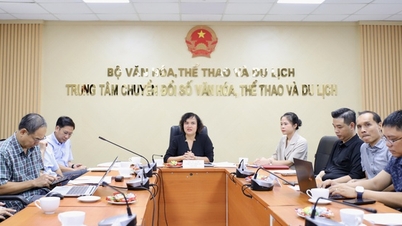
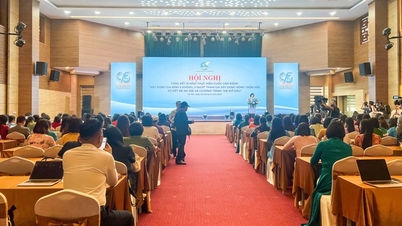
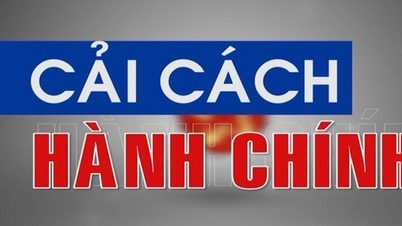



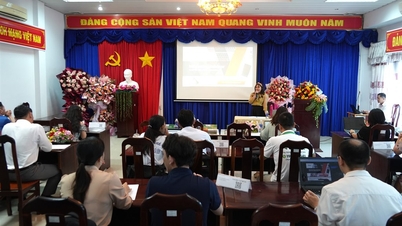
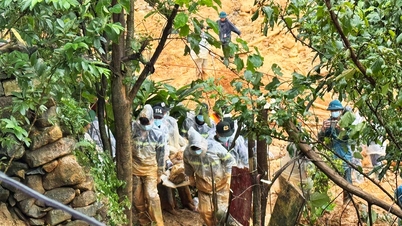

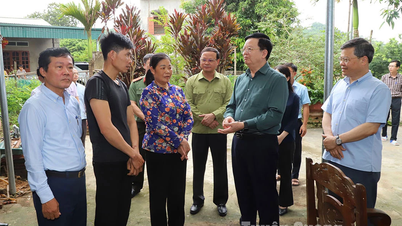
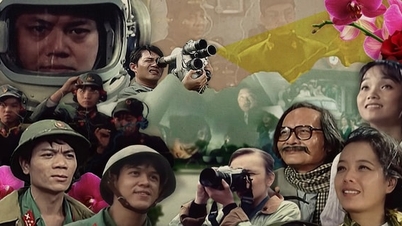

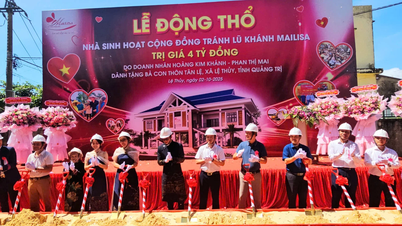

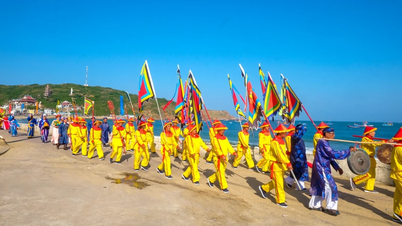













Comment (0)